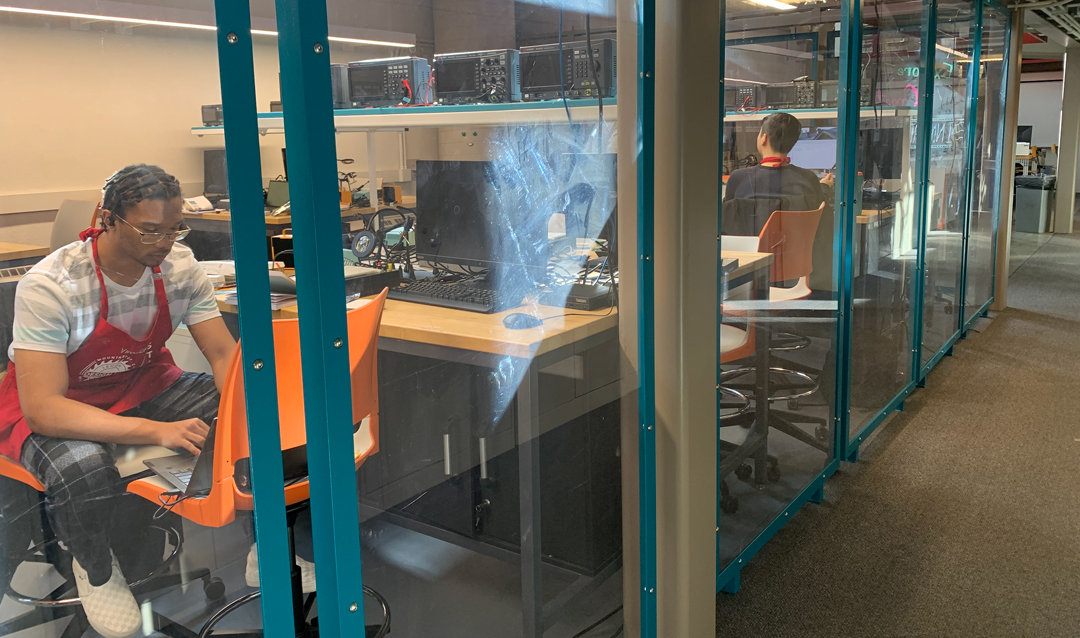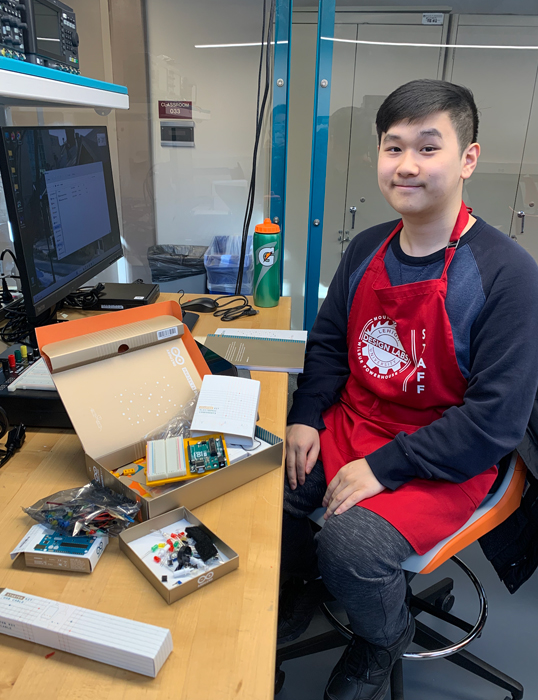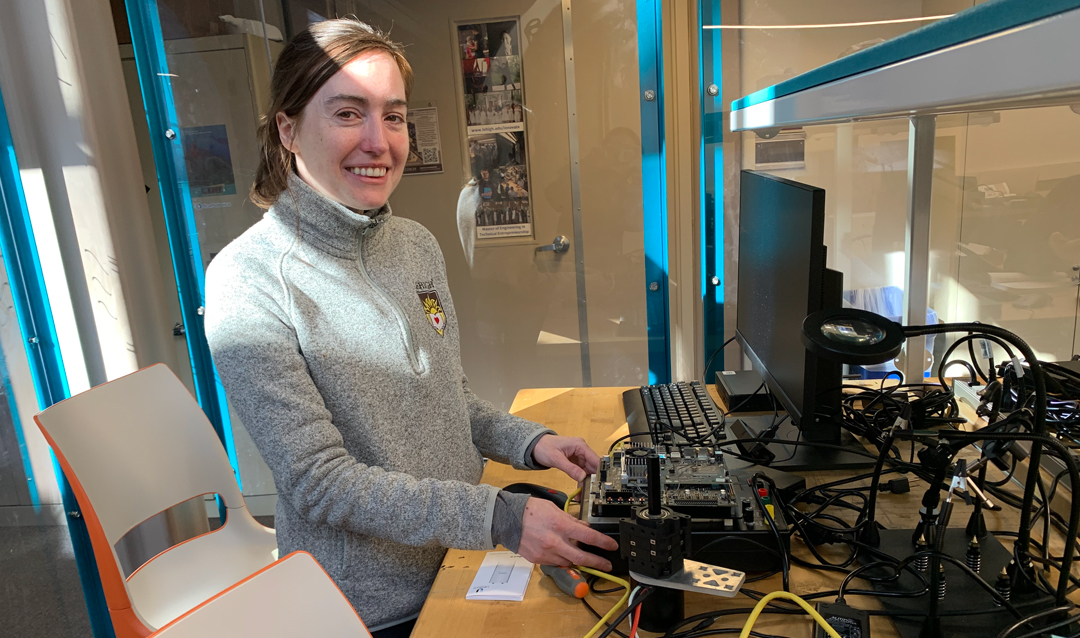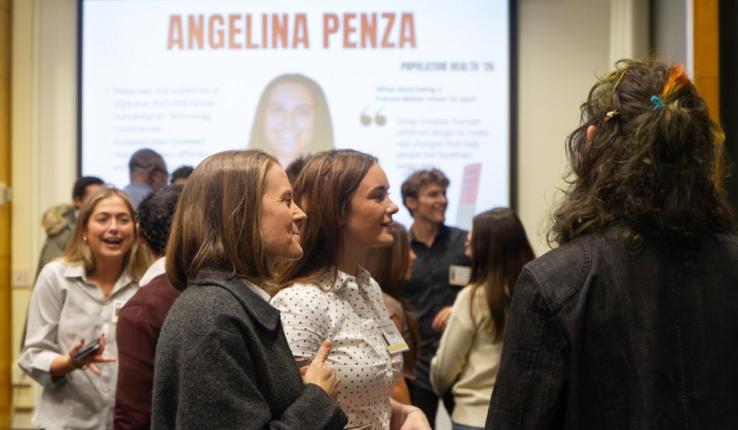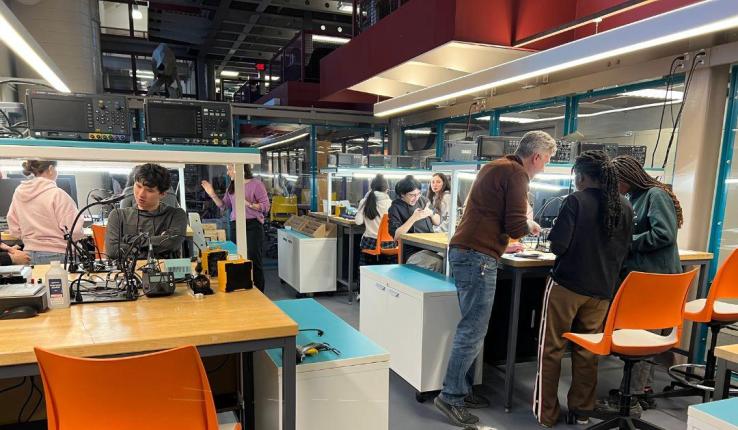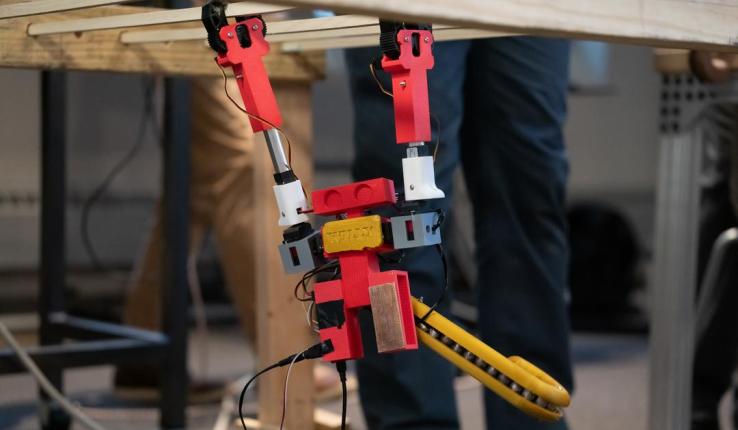The Electronics Design Studio is part of an expansive network of fabrication facilities across Lehigh’s campus that gives students the resources to craft projects from a variety of materials. Equipped with 10 workstations, the studio is designed to provide all students with the tools and support to execute design projects and accomplish collaborative activities.
Each station at the Electronics Design Studio hosts a wide range of tools and supplies necessary for circuit building, including soldering stations and benchtop test equipment such as multimeters, power supplies, oscilloscopes and waveform generators. Additionally, the studio has a wide array of supplies for circuit prototyping, including microcontroller kits, breadboards, thru-hole components, and a range of sensors and actuators.
In addition to the workstations, the Electronics Design Studio features two machines for PCB fabrication, which are valuable tools for students studying electronic circuit design. The machines allow for the quick creation of circuit design prototypes, facilitating the testing and refinement process before committing to full-scale production.
“With the launch of the Electronics Design Studio, we have added an exciting new dimension of impact to the student experience,” says Steve DeWeerth, professor and dean, P.C. Rossin College of Engineering and Applied Science. “Lehigh’s network of campus maker spaces already engages students from all majors and skill levels to flex their creativity in a wide variety of contexts. The university maintains assets that run the gamut from woodworking and 3D printing in metal, to theater set design and the development of bridge components. Now, students can pursue projects that integrate microcontrollers, sensors and actuators in the design of innovative new products and smart systems.”
Students of all backgrounds, regardless of prior experience with electronics or engineering design, are welcome to use the Electronics Design Studio, says Kelly Zona, manager of Wilbur Powerhouse Design Labs. She welcomes students to explore the studio and its offerings, with or without an appointment.
For students new to electronics, the studio provides starter kits that explain the basics of circuits, breadboards, resistors, capacitors and more. Zona and eight student tech fellows provide technical assistance and answer questions.
“Most of the students are coming in with a design idea or an already worked-on circuit,” says Zona. “But we can also help students to start building from an idea or a goal they want to achieve.”


